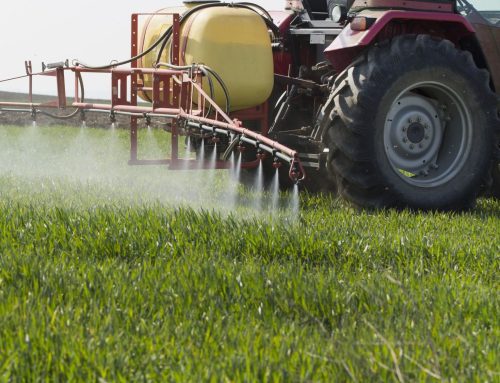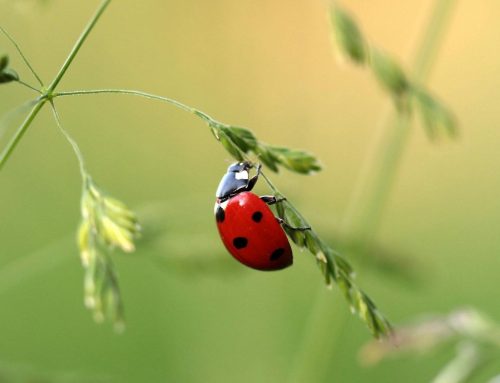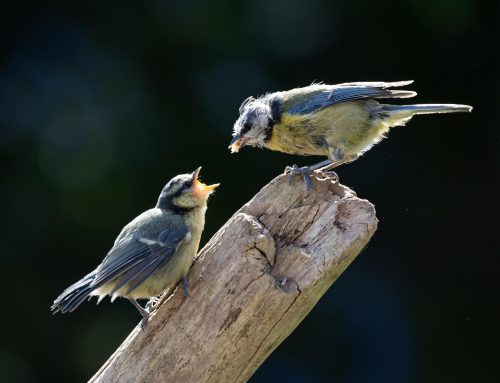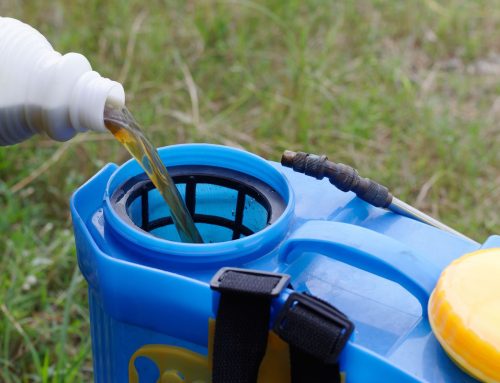This year, the Pesticide Collaboration attended the Liberal Democrat and Labour Party’s autumn conferences. Much has changed since autumn 2023 and we spent much of the year focussing our advocacy efforts on the Labour Party in particular, given that polling suggested a landslide victory.
Party Leader, Sir Ed Davey, kicked off the Liberal Democrat conference by arriving in Brighton via jetski to celebrate the party’s growth from 15 MPs to a whopping 72.
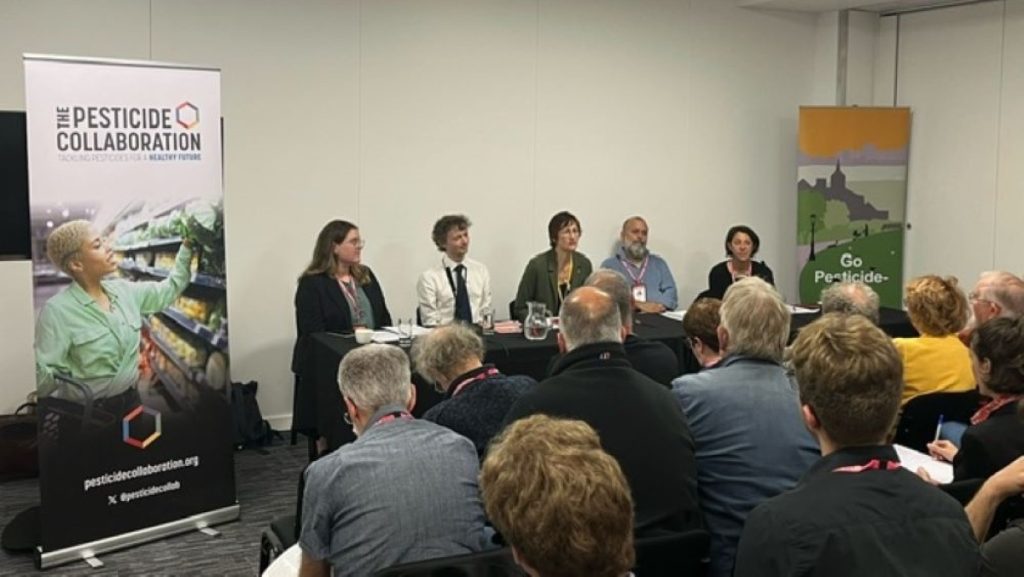
Our session ‘Health, Environment and Social Justice, Everything the Liberal Democrats Need to Know About Pesticides’ was opened by Nick Mole from PAN UK. He gave an overview of the many problems caused by pesticides and how the issues of health, environment and social justice are all interlinked. The panel included Cllr Julia Neden-Watts from Richmond Council, and she discussed Richmond’s journey to reducing pesticide use. There were many councillors from across the UK in the audience, and it was great to hear their experiences and questions about the transition to chemical-free alternatives. Richard Benwell, CEO of Wildlife & Countryside Link, also spoke on the panel about the enormous scale of chemical pollution in the farming sector and the need for NGOs to increase public awareness about the problems caused by pesticides. Josie from PAN UK discussed PAN’s work on international trade and pesticide standards.
The Liberal Democrats’ manifesto pledges the following:
“Working with and rewarding farmers to reduce the use of costly imported and environmentally harmful artificial fertilisers and pesticides, helping to protect bees and other pollinators.” During this parliamentary session, we hope to continue to work with Liberal Democrat politicians to hold the government to account and push them to be bolder in this area.

The following week, we were off to Liverpool. The Pesticide Collaboration hosted a fringe session called ‘The Health Impacts of Pesticides: Protecting UK Workers, Consumers and Local Residents Under a Labour Government’. Kate Metcalf from the Women’s Environmental Network spoke about the gendered dimensions of pesticides and health, and Gareth Lloyd-Johnson from Breast Cancer UK discussed the links between pesticides and breast cancer. The whole panel, which also included Nick from PAN UK, discussed the pesticide industry’s efforts to downplay the health impacts of pesticides and the murky funding that is often funneled into academia from corporations.
Pesticides do not feature in the official Labour manifesto, but ahead of the general election in July, Labour committed to ending the cycle of ‘emergency’ derogations that the previous government authorised on the neonicotinoid pesticide thiamethoxam. This is applied to sugar beet crops in England and 1 teaspoon of thiamethoxam can kill more than 1 billion bees.
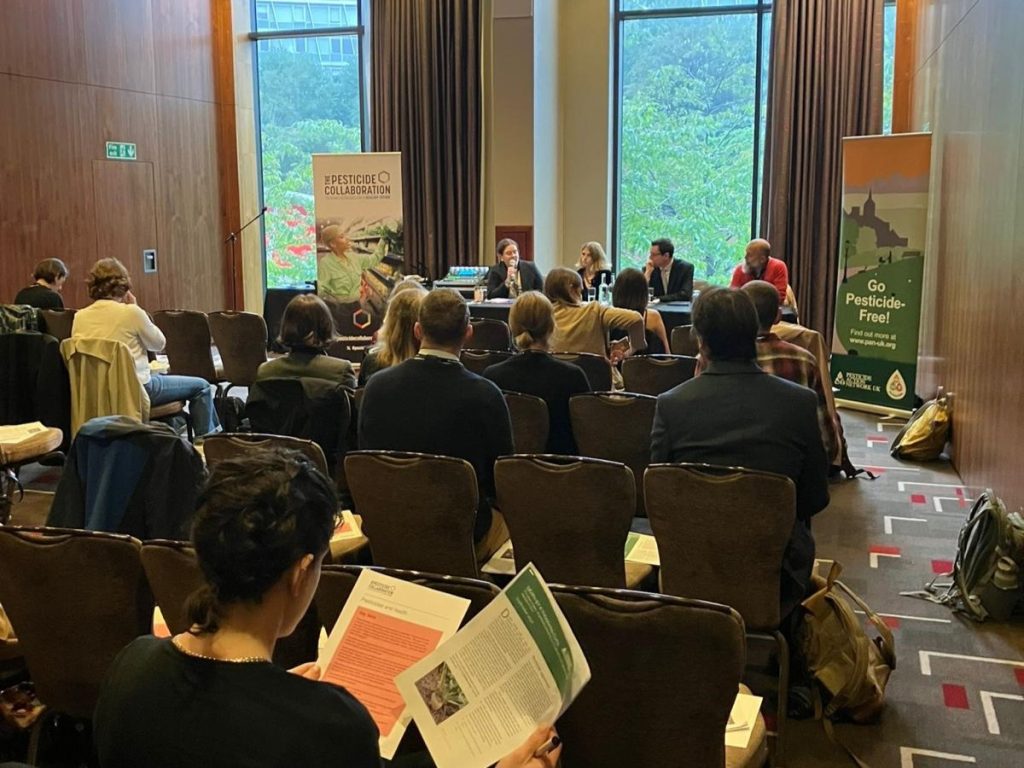
There are a few key policy moments coming up. Firstly, in a formal response to a letter sent by the Pesticide Collaboration, the new chemicals minister Emma Hardy MP expressed her intention to meet with us to discuss the use of pesticides in villages, towns and cities. We are awaiting a date for the meeting, but we hope to discuss why a national ban is so important for the environment, for residents’ health and for supporting local authorities.
The first test of Labour’s commitment is the forthcoming decision, in January, on whether to grant another emergency neonicotinoid derogation application from British Sugar. The application must be considered legally, but we hope that they follow through on their election commitment and do not allow this to go ahead.
Finally, we are still waiting for the long-awaited National Action Plan on the Sustainable Use of Pesticides (NAP), which is now over 6 years late. We hope that a change in government will result in an ambitious NAP that can set a clear roadmap for pesticide reduction across the next few years.
Over the rest of the autumn we will continue to press the government on these issues, working with opposition parties and other NGOs and charities to make sure the new government hears a united voice around the pressing need to reduce pesticide-related harms.

